Cat Dad Asks If It's Wrong To Call His New Kittens "My Babies"
When you have a pet, you essentially act as its provider, which is very similar to being a parent. You provide for its basic needs, ensure that it receives all the right love and attention, and make certain that your pet has a well-rounded life.
That's why many pet owners have taken to calling themselves "fur dads," "fur moms," "cat dads," "dog moms," and similar titles. Plenty of people don't take issue with it because it makes sense, especially for those who are particularly dedicated to their pets and treat them like their own children.
Of course, some people find it a bit cringe when others hold onto that title. Redditor KittyKaty5509's girlfriend is exactly one of those individuals.
While most of those people would simply wrinkle their noses at it, OP's girlfriend insists that it's unbecoming and asks him to stop entirely. He's not hurting her in any way, nor is he being overly eccentric about it, but she perceives it that way regardless of what he says.
Now, OP is wondering if he is the one in the wrong in this situation. Here's the whole story.
OP asks:

His girlfriend likes his current cat, but she thinks some of his behaviors toward his cat are weird.
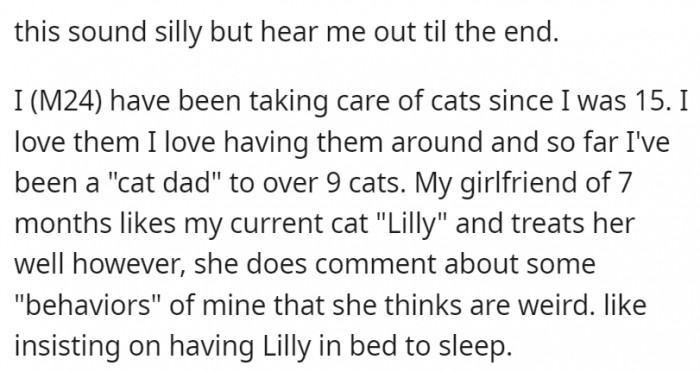
While she normally just ignores it, there was a point when she asked him to delete a post where he called his cat's new kittens his babies.
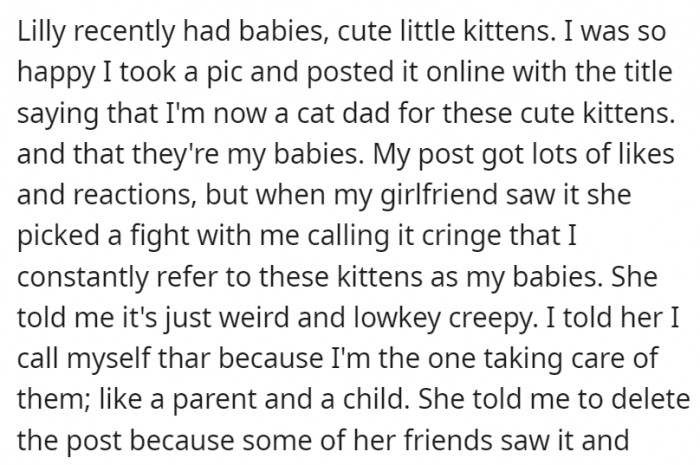
The Social Implications of Pet Naming
Dr. Emily Carter, a social psychologist, suggests that how we refer to our pets can reveal deeper social dynamics at play.
Referring to pets as 'babies' can be seen as an expression of affection; however, it may also reflect societal trends surrounding human-animal relationships.
This is particularly relevant in today's context, where many individuals view pets as family members, a shift documented in studies published in the Journal of Social Issues.
Apparently, him calling the kittens his babies was the final straw for her.
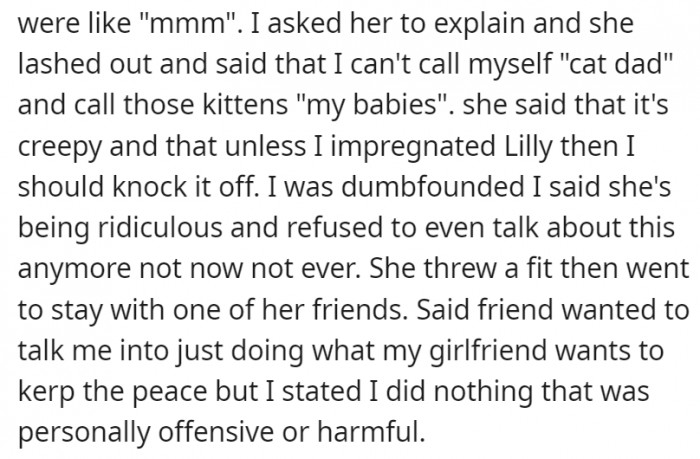
She thinks he's being inconsiderate by continuing to do something she's uncomfortable with.
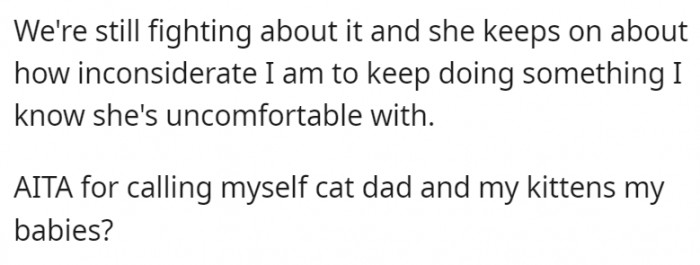
A lot of pet owners and pet lovers would completely understand where OP is coming from. It's not uncommon for people who have pets to refer to them as their children, and it's also not unusual for owners to call their pets their babies.
It's how they show just how much their pets matter to them. Unfortunately, it seems that OP's girlfriend has a problem with it.
People in the comments section are also sympathetic to the boyfriend. Many of them even advise OP not to let his girlfriend take away his joy in loving his cats.
Here are the top comments.
1. This person has the perfect advice for OP.
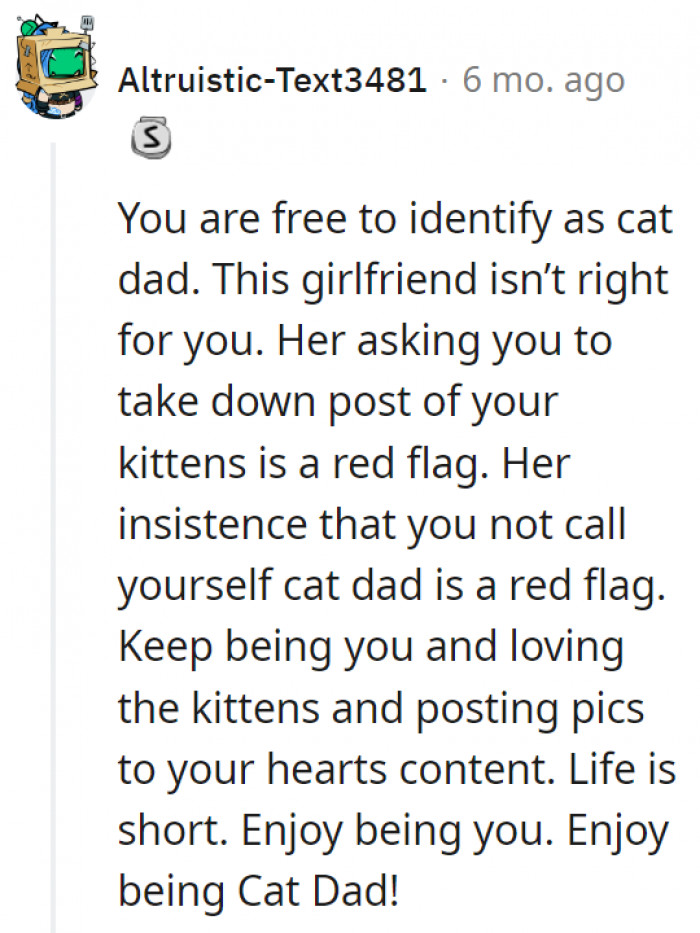
Research indicates that affectionately naming pets can strengthen bonds and enhance emotional well-being.
Studies show that pet ownership is associated with increased feelings of happiness and decreased loneliness.
The psychological comfort derived from treating pets like children may provide individuals with a sense of connection and purpose.
2. Hopefully, this doesn't truly happen.
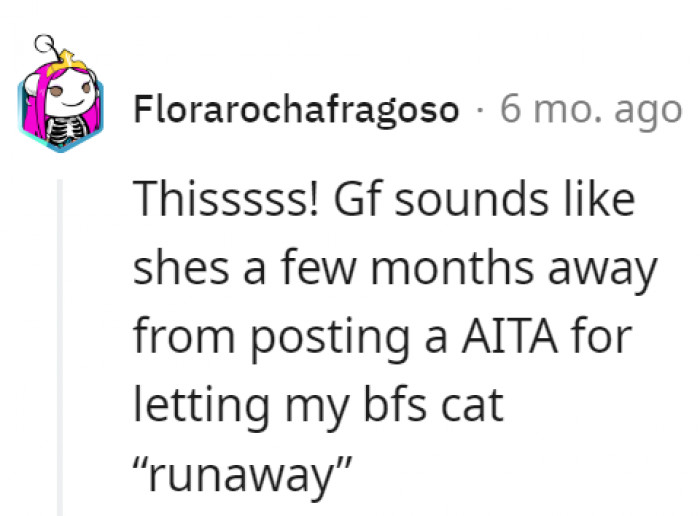
3. OP's girlfriend needs to find some joy in her life; maybe that way, she'd understand where OP is coming from.
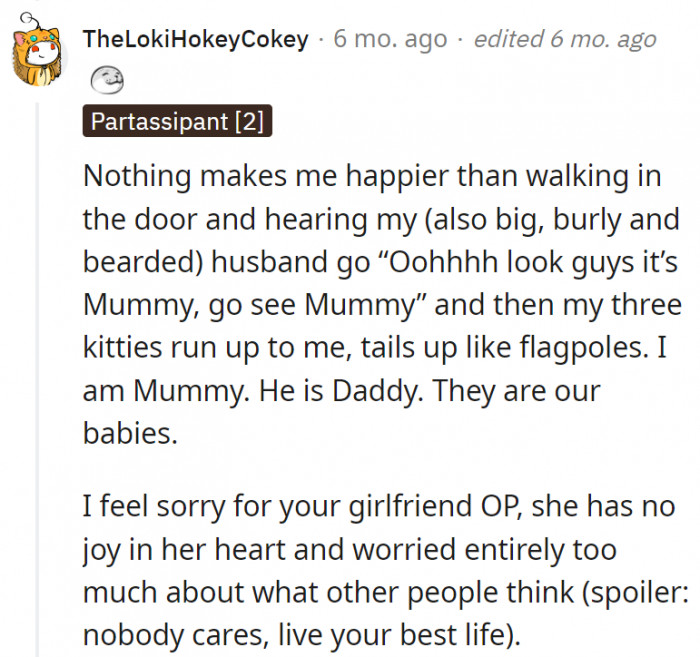
4. OP's girlfriend might just be a little jealous of the kittens.
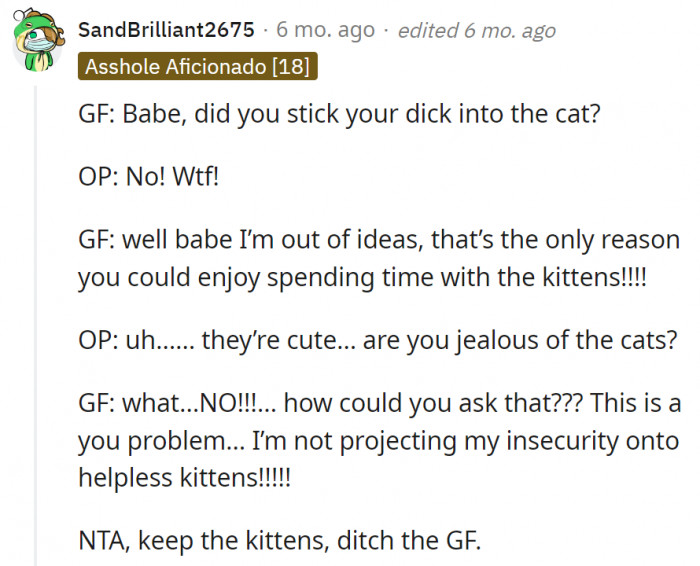
Balancing Affection and Social Norms
While expressing affection for pets is natural, it’s essential to navigate social perceptions carefully.
Psychologists recommend being mindful of how these expressions may be received by others, as differing viewpoints can lead to misunderstandings.
Reflecting on the motivations behind our language can help clarify these dynamics, fostering open communication with loved ones about our feelings toward our pets.
5. There are so many kittens that don't find homes, and increasing their number would not be beneficial.

6. That lady would probably have a heart attack.
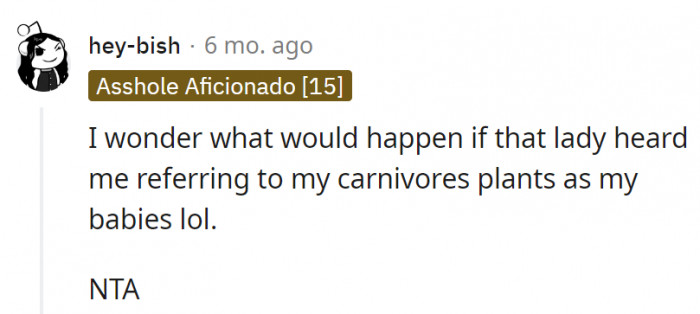
7. The kittens seem to be bringing him more joy anyway.
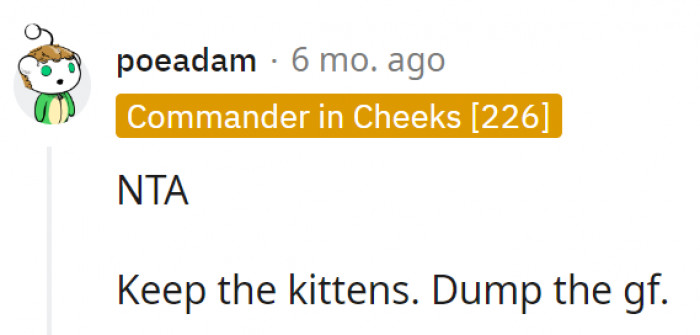
In dealing with the potential judgment from others, cognitive-behavioral strategies can be beneficial.
According to Dr. Ramani Durvasula, a clinical psychologist, "Reframing negative thoughts and focusing on what truly matters to you can significantly enhance your self-esteem." This means embracing one's affection for pets while recognizing that differing opinions exist and don’t diminish the love we feel.
8. There might come a day when she makes OP choose between her and the cats.
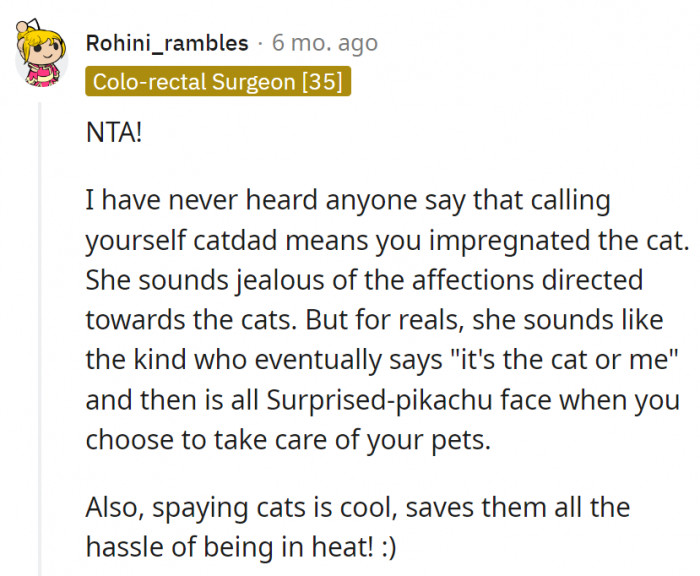
9. There might be more to her reasons.
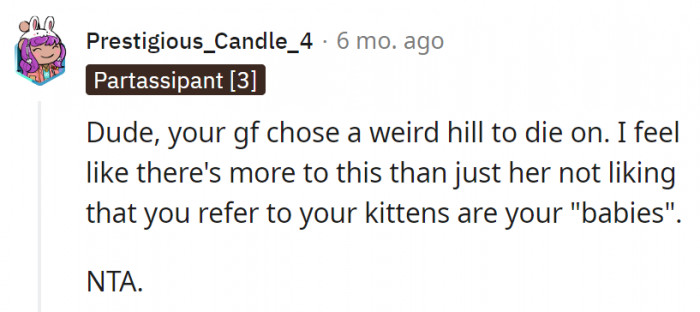
10. The girlfriend's reasons seem to be a lot more cringe than OP calling his kittens his babies.
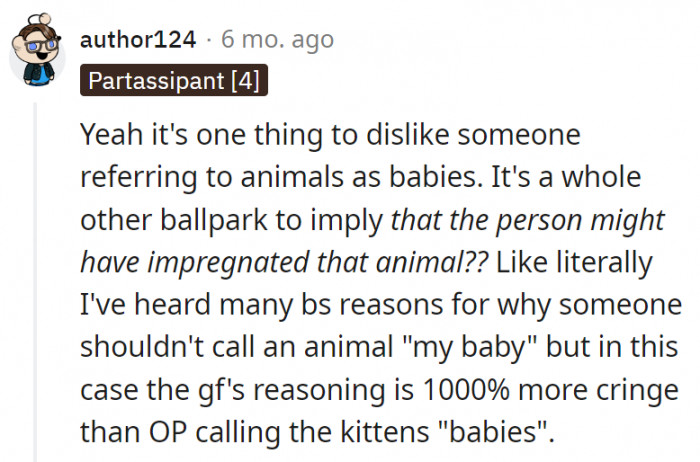
11. OP deserves to be with someone who understands him.
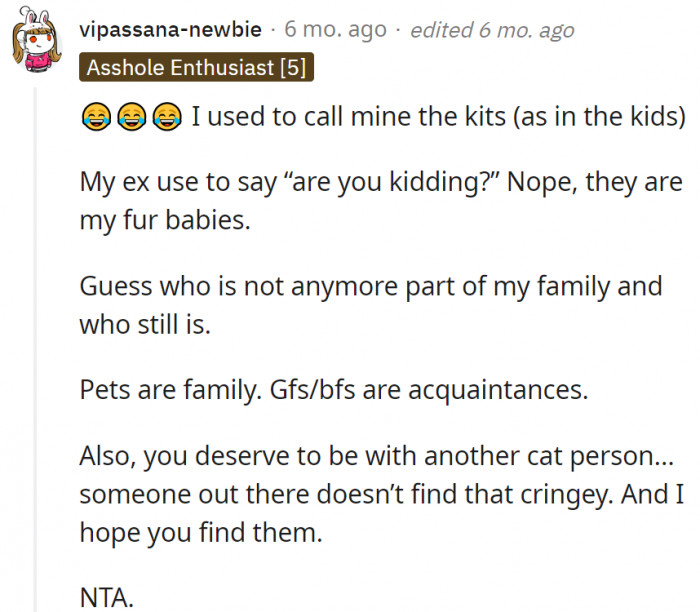
12. Maybe they're just really incompatible with each other.
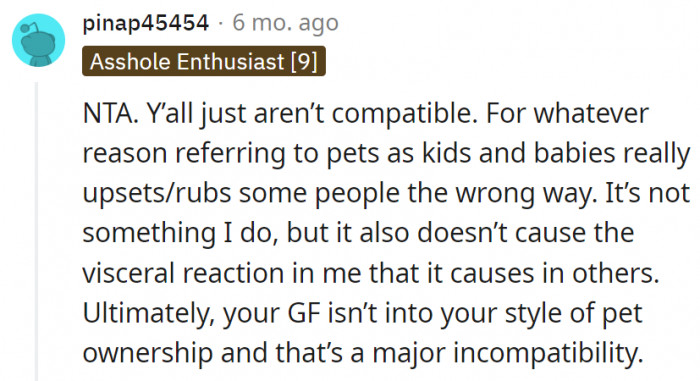
13. Maybe she just doesn't project onto pets that way.
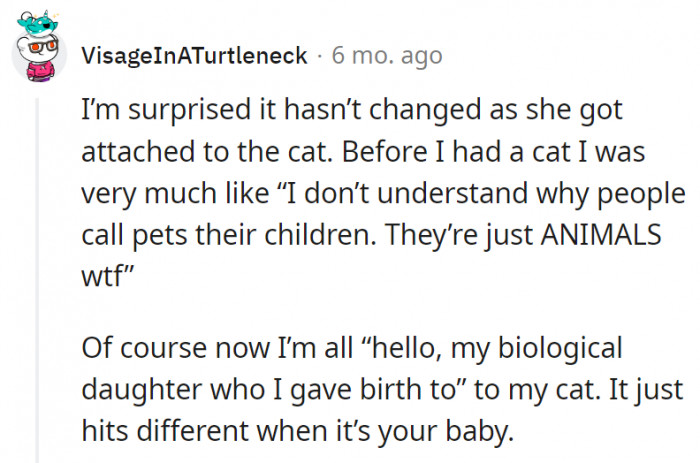
14. What she said was a little messed up.

15. She probably said anything she could think of that might embarrass him, but the joke's on her.
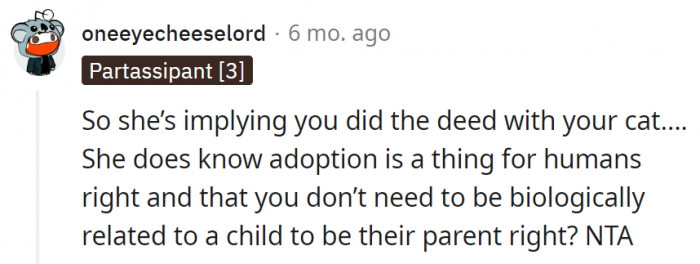
16. What's next if he agrees to her demands now?
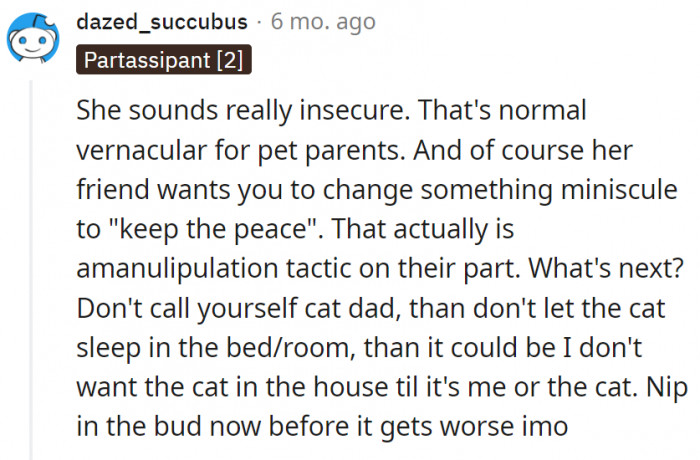
17. It's the girlfriend who's being weird about the whole thing.
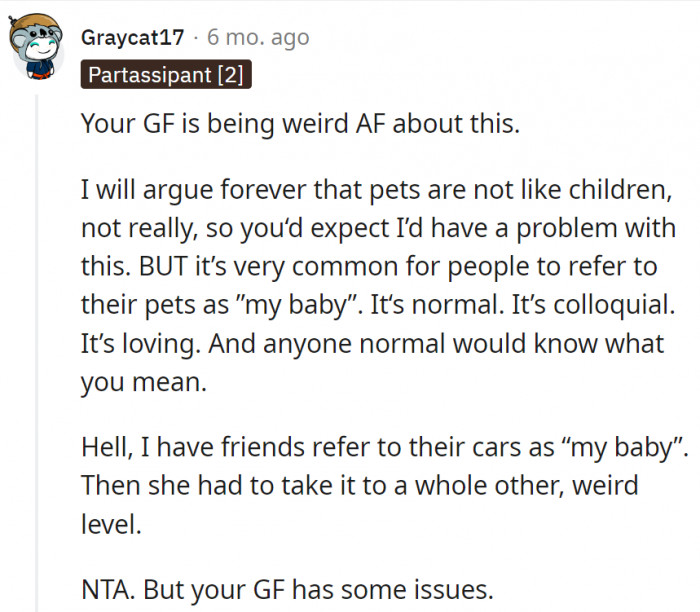
18. She might be jealous of all the affection they're receiving.

19. It's such a harmless thing.
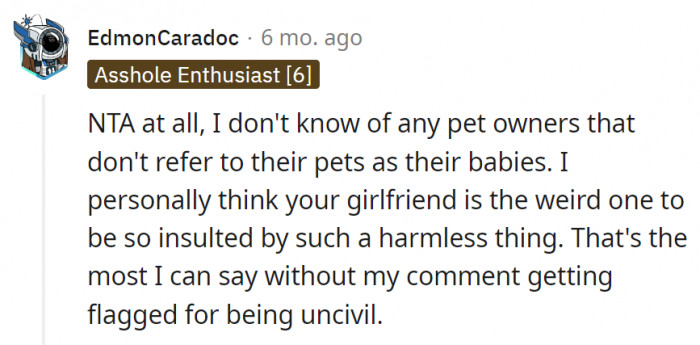
20. OP calls them that because they're family to him, and his girlfriend doesn't seem to understand that.
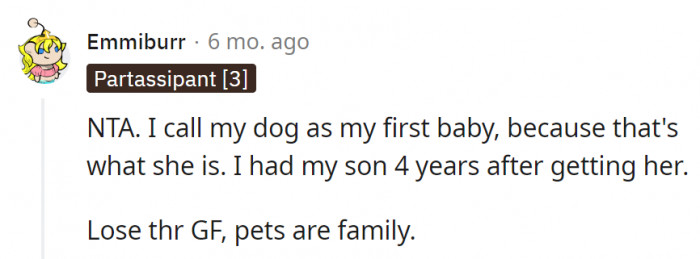
Pet owners calling themselves their pet's parents isn't unusual. They've been doing it for so long.
What's weird is the aggressive reaction of the girlfriend toward it, especially when it's such a harmless thing. Even the way she framed her argument is a little odd.
Hopefully, OP figures out what to do, and hopefully, the cats and kittens stay well throughout it all.
Psychological Analysis
This discussion highlights the complexity of human-animal relationships and the varied ways individuals express affection.
Understanding that these expressions can be both personal and socially constructed allows for greater empathy toward differing viewpoints.
Analysis generated by AI
Analysis & Alternative Approaches
The interplay between personal affection for pets and societal norms is a fascinating area of study.
Psychologists emphasize that understanding these dynamics can enhance interpersonal relationships and promote self-acceptance.
Ultimately, expressing love for pets in a way that feels authentic to oneself is just as valuable as considering the perspectives of those around us.



